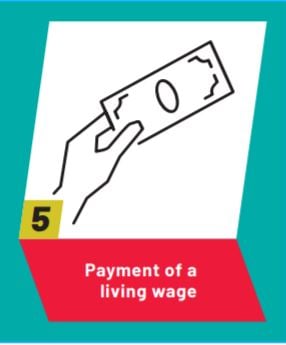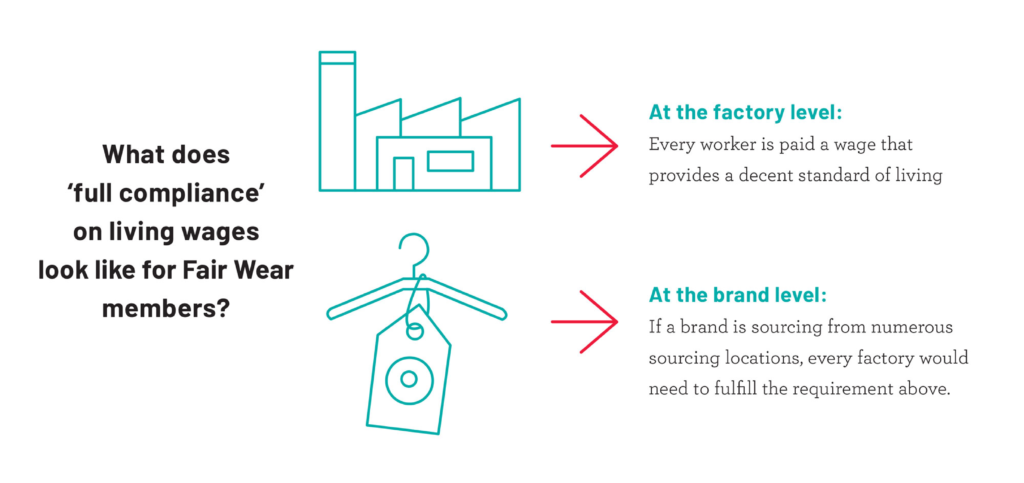
Living wages and the Fair Wear Code of Labour Practices
Living wages are a human right

Our Code of Labour Practices defines a living wage as a wage paid for a standard working week that meets the basic needs of workers and their families and provides some discretionary income. ‘Basic needs’ includes costs like housing (with basic facilities like electricity), nutrition, clothing, healthcare, education, drinking water, childcare, transport, and savings.
This Fair Wear labour standard aligns with United Nations standards. The UN Economic, Social and Cultural Rights Covenant states that workers’ wages should deliver ‘a decent living for themselves and their families’, while the UN’s Universal Declaration of Human Rights calls for wages that ensure ‘an existence worthy of human dignity.’ In short, living wages are a human right. Fair Wear member brands commit to business practices that help support this right. They should only source from suppliers where workers earn at least a living wage.
Given the realities of today’s diffuse, global garment industry, we take a process-based approach to achieving living wages.
What does this mean? Through our Performance Check methodology, we offer incentives and guidance to members that introduce immediate and real wage improvements for workers who make their products. In many cases, brands start by calculating and paying their share of living wages in the factories from which they source.
Nevertheless, a brand only truly meets our living wage labour standard when all the factories they source from pay a living wage.




